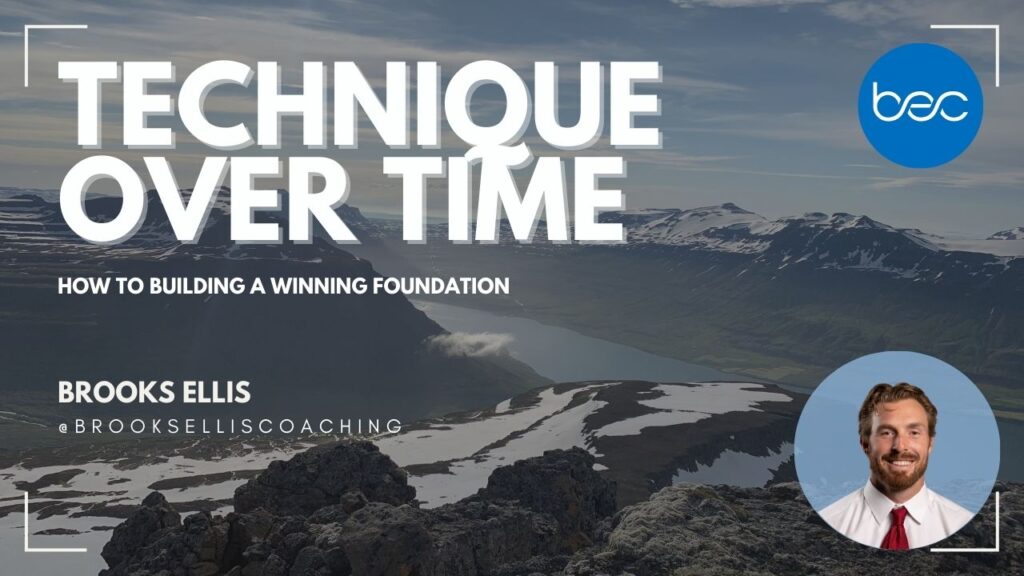In April 2017, after attending the NFL Combine in Indianapolis, the New England Patriots selected me as an undrafted free agent. I spent the next four months learning from the greatest football coach ever.
Here’s what I learned:
- I am the worst football player of all time.
- I’m worthless as a human being.
- I used to like football, but now I hate it.
And that concludes the Bill Belichick experience…
Seriously, while I did not entirely enjoy my time in New England, it was one of the most eye-opening and transformative experiences I’ve ever had.
Here’s what I learned… for real:
1. Put the Team First
As soon as you walk into the building, it’s all about the team. In our first meeting, Coach Belichick began peppering us with questions about the players on the walls in the hallways, the current roster, and the history of the Patriots. Nobody was immune to his questioning, and if you didn’t know the answer, you had to go find out right there on the spot while everyone waited for your return
Coach Belichick’s entire organization revolves around dedicating one’s life to the team’s success. With a military background and strong respect for the military—his dad coached for the Navy—he constantly lauded their approach to purpose and putting the good of the team before anyone else.
In New England, the team always came first, and individual activities became team-oriented experiences. This differed from my experience at Arkansas, where the offense and defense would watch game and practice film separately. In New England, Coach Belichick would throw on practice or game film and go through 30 minutes to an hour of film with the entire squad. You always prepared for the worst walking into these meetings because nothing was off the table. Even the smallest infraction of discipline would be brought into the light for all to see.
Nobody was above the team, not even Tom Brady. As someone who came in as an undrafted free agent, this was an encouraging reminder, though hard to appreciate amid all the pressure.
This approach, though agonizing, was incredibly effective. The entire team learned from each other and grew together. When you silo different roles on a team—believing their roles are not interrelated—the team doesn’t feel as connected. You start to forget that the team’s success isn’t based on the success of just one sector but on the collaborative, synergistic effort of the entire group. If the offense has a bad day, the defense or special teams must make up for it.
When everything you do as a team is separated, you become less invested in the team’s overall performance and more focused on how your specific group is doing. This creates a me-first mentality instead of a team-first mentality. Coach Belichick constantly enforced the team-first mentality, showing how high standards and accountability must be implemented for the whole team’s success—not just individual or group performances.
In these meetings, you not only learned about your performance but also about how your teammates were practicing, either improving or falling behind. It was an opportunity for the entire team to come together and learn about the functioning of the team. You learned how your role on defense affected the offense’s performance and vice versa. A team sport must be treated as a team; just as you practice together, you must watch film together. You must learn how your teammates work, and you must support the other sectors of a team, so in the heat of battle, you’re not pointing fingers but working together to find a solution and encourage one another.
When the team is invited to learn about the team’s progress, the team, a group of individuals, begins to realize their critical role is to support the team, and their lack of preparation and subpar performance affects the whole team’s success.
Ultimately, it’s a humbling and encouraging message: no matter your position, you’re there to do one thing—Do your job. In a team sport, your job is to support the team’s needs. The better you support the team, the more they rely on you to take on greater responsibilities, and the greater your team performs.
“Just as a body, though one, has many parts, but all its many parts form one body, so it is with Christ.” – 1 Corinthians 12:12
Questions:
- When faced with a challenge or decision, do I focus on how my actions will benefit the team, or do I prioritize my own success?
- Am I willing to accept feedback—especially in front of my teammates—and use it to improve my contribution to the team?
- Do I take responsibility for my role and consistently perform my tasks to support the team’s overall goals, even when no one is watching?
2. Be Professional
Football is no longer just a fun activity as a professional football player—it’s your livelihood. For most, it’s a chance to change your life forever. Therefore, every part of your routine and behavior must reflect professionalism.
Professionalism is all about preparation. When you attend meetings, you must show up prepared with a pen and paper, leaving all personal and off-the-field issues behind. You need to be focused, ready to learn, take notes, and ask questions at the right time while avoiding distractions.
Being professional also means understanding your role and preparing for success before the meeting, practice, or game. These moments aren’t opportunities to learn for the first time—they’re chances to show the coaches that you’re prepared, coachable, and ready to perform. Preparation shows you care, can be trusted, and are ready for greater responsibility.
It’s not just about mental preparation, but physical too. Coach constantly harped on hydration, nutrition, and sleep because he knew that even a slight hamstring pull could derail the progress of his best players. Showing up to meetings dozing off or practicing while feeling sluggish wasn’t an option. Your job is to build on the previous day’s work, and if you’re falling behind in nutrition and body care, you’ll never stack the days of practice needed for your best performance—and for the team’s success.
As a pro, you have no excuses not to care for yourself. The team nutritionist ensures your post-practice protein smoothie is always ready, with an abundance of whole-food nutrition and supplements. The training room is equipped with endless recovery tools. But those tools don’t use themselves—nobody else will do it for you. With your livelihood on the line, and everyone in the building (except maybe Gronk) constantly on edge, wondering if they’ll be called out, you must act professionally and take care of your business.
Coach always warned us about distractions. Living in the small town of Foxborough in an extended-stay hotel, about 45 minutes outside of Boston, distractions were minimal from a social standpoint. However, technology provides an endless source of distraction—everything at our fingertips. One wrong press of a button being distracted from studying your playbook and cultivating a healthy mind, one that isn’t prepared and one that isn’t developing into the player they need for their next Super Bowl run.
Further, a quick trip to Boston could be the difference between being rested and ready to perform or craving yet another weekend in the city. One thing I wish I had learned sooner is that focusing on learning and improving—and finding joy in that growth—was far more important than being entertained. That difference determined success on the team or finding yourself back at home.
Embrace discomfort. The more you can embrace discomfort—whether it’s the physical pain of practice or the mental challenge of uncovering daily mistakes—the more growth you’ll experience. The higher your chances of success.
Professionalism, beyond preparing your mind and body for success, is about understanding that success doesn’t come from masking discomfort. It comes from embracing it, knowing it’s producing a stronger, more capable athlete, person, and leader—someone who can push through any adversity they face.
Questions:
- Do I show up prepared—mentally and physically—for every meeting, practice, and game, ready to contribute at my highest level?
- Am I consistently holding myself accountable for taking care of my body through proper nutrition, hydration, and rest to perform at my best?
- Do I stay focused on my goals, avoiding distractions that could derail my progress, and approach every aspect of my routine with discipline and professionalism?
3. Details Matter
During a rookie-only meeting later in the summer, Coach Belichick asked a series of random questions about the football field’s metrics. One of the rookies didn’t know the width of the hash mark, so Coach made him take a ruler out to the field and measure it—while the rest of us waited and watched.
It was more torture than anything, but the point was clear: attention to detail mattered. Failing to focus on the smallest details meant ridicule and rebuke for not holding the same standard that Coach demanded from himself, the coaches, and every player on the team.
This attention to detail extended into our defensive techniques. The smallest misstep—whether lining up incorrectly, blitzing too early, or missing a visual cue—caused chaos on the sidelines. Coach’s defensive background meant his expectations were especially strict in these areas. If anyone jumped offsides or false-started, both the offense and defense ran laps, no matter how close we were to finishing practice.
He’d call out the punt team or field goal unit at random moments for a sudden change-of-possession challenge. The lesson? Stay engaged and alert, because just like in a game, turnovers can happen at any moment, and you must be ready.
His obsession with details was never clearer than during the morning team film meetings. Coach would scroll through the previous day’s practice, calling out even the smallest mistakes. Whether it was Julian Edelman cutting with the wrong foot, Gronk taking a bad angle during a drill, or the rare case of Tom Brady making a bad read—nobody was immune. Every detail mattered.
When the details slip, everything else slips, and how you do the small things, is how you do everything.
The Patriots were known for developing under-the-radar talent, and this culture of high standards and accountability to the smallest details is why they thrived. Without a deep commitment to detail, that team couldn’t have come back from a 28-3 deficit to win Super Bowl LI.
Questions:
- Am I paying attention to the small details in my work or routine, knowing that even minor oversights can have a significant impact on my overall success?
- Do I stay engaged and ready for unexpected changes, or do I allow myself to be caught off guard when things don’t go as planned?
- Am I holding myself and others accountable to the highest standards, ensuring that the small but critical elements are never overlooked?
Conclusion:
The New England dynasty was a well-oiled machine led by a coach who built success through a team-first mentality, professionalism, and a relentless focus on the details. That’s how the Patriots embodied the “Patriot Way” and found tremendous success time and time again.
Embrace this mindset, and you’ll find success not only in the field but in life. Whether you’re a coach, player, parent, or businessperson, it’s not about you—it’s about the process and fulfilling your essential role within the machine.
We all have a part to play, and it’s your job to play it well.







